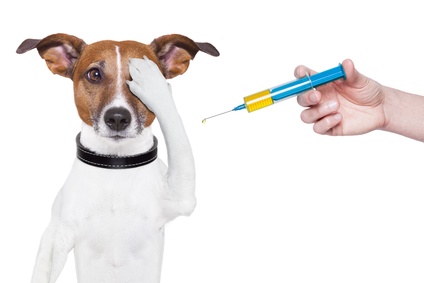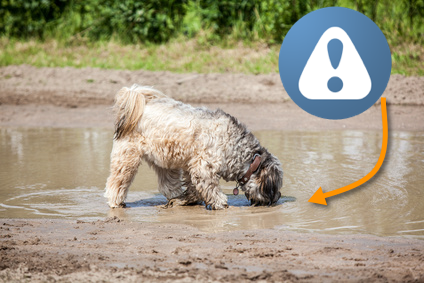It’s Maui. It’s hot. Keep your dog hydrated. All things we already know.
It also rains. It’s tropical. There are mud puddles.
It’s Called Leptospirosis
There are only 100-200 cases of leptospirosis reported in the United States every year. But here’s the deal, 50% of those cases come from Hawaii!
Because of the tropical climate the disease is much more prevalent, giving good reason why Maui dog people should know how to recognize the symptoms and when to get medical attention.
What is Leptospirosis?
Leptospirosis is a bacterial infection transmitted by contact with water or soil that has be contaminated through infected animal urine. More cases occur with heavy rainfall and tropical environments. It is often found in areas with waterfalls and freshwater ponds where bacteria can live for long periods of time.
What are signs of Leptospirosis in Maui Dogs?
The symptoms of leptospirosis are similar to many other viral and bacterial infections. Mis-diagnosis can easily occur.
Be aware of the signs and pay attention to water sources your dog may have drank out of.
![]() Weakness and loss of appetite
Weakness and loss of appetite
![]() Vomiting
Vomiting
![]() Diarrhea
Diarrhea
![]() Sweating paw pads or chills
Sweating paw pads or chills
![]() Loss of appetite
Loss of appetite
![]() Red eyes, squinting from eye pain
Red eyes, squinting from eye pain
If the disease is left untreated, more serious symptoms can develop, including:
![]() Kidney damage
Kidney damage
![]() Liver failure
Liver failure
![]() Meningitis
Meningitis
![]() Heart failure
Heart failure
How to Prevent Leptospirosis in Maui Dogs

 The most effective way to prevent leptospirosis is to restrict a dog’s access to muddy marshy areas, ponds, irrigated pastures, raw sewage and standing pools of stagnant water.
The most effective way to prevent leptospirosis is to restrict a dog’s access to muddy marshy areas, ponds, irrigated pastures, raw sewage and standing pools of stagnant water.
It’s often hot in Maui and we are conditioned to make sure our dogs get water. When they head for a mud puddle after one the heavy rains, it seems almost wrong to not let your dog drink.
But really, its a bad idea.
There is a vaccine for leptospirosis in dogs. Talk to your vet about those and know you should do your own discovery about how often it is necessary.
If you are on an outing, make sure to carry your own water for your dog.
And yes, I DO give my dogs bottled water!
P.S. How about you? What is your dog’s main water source?
Like this post? Share it!



